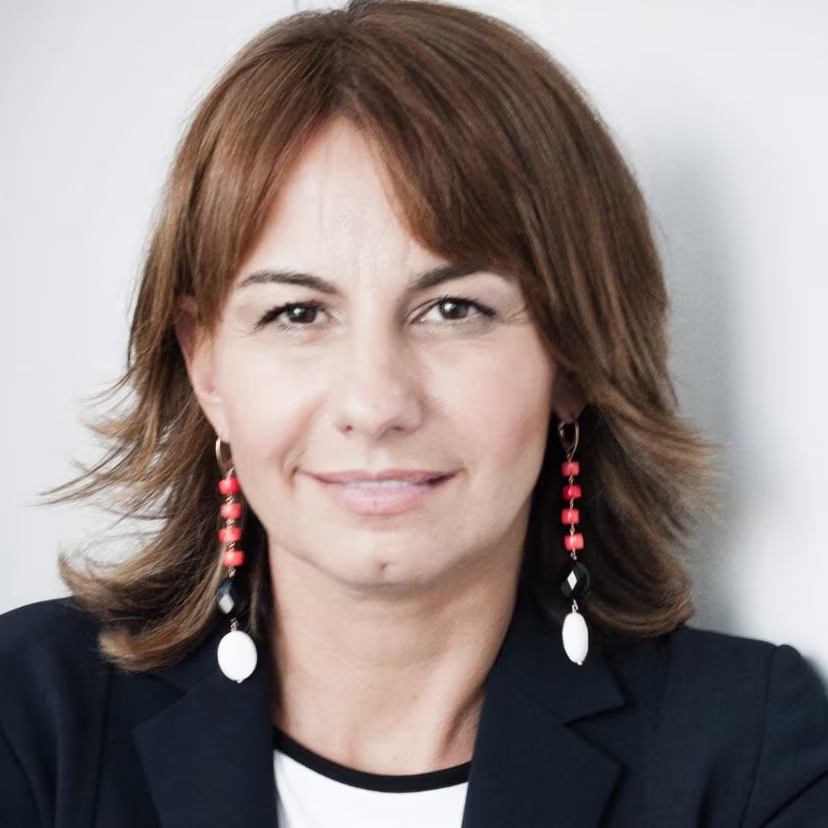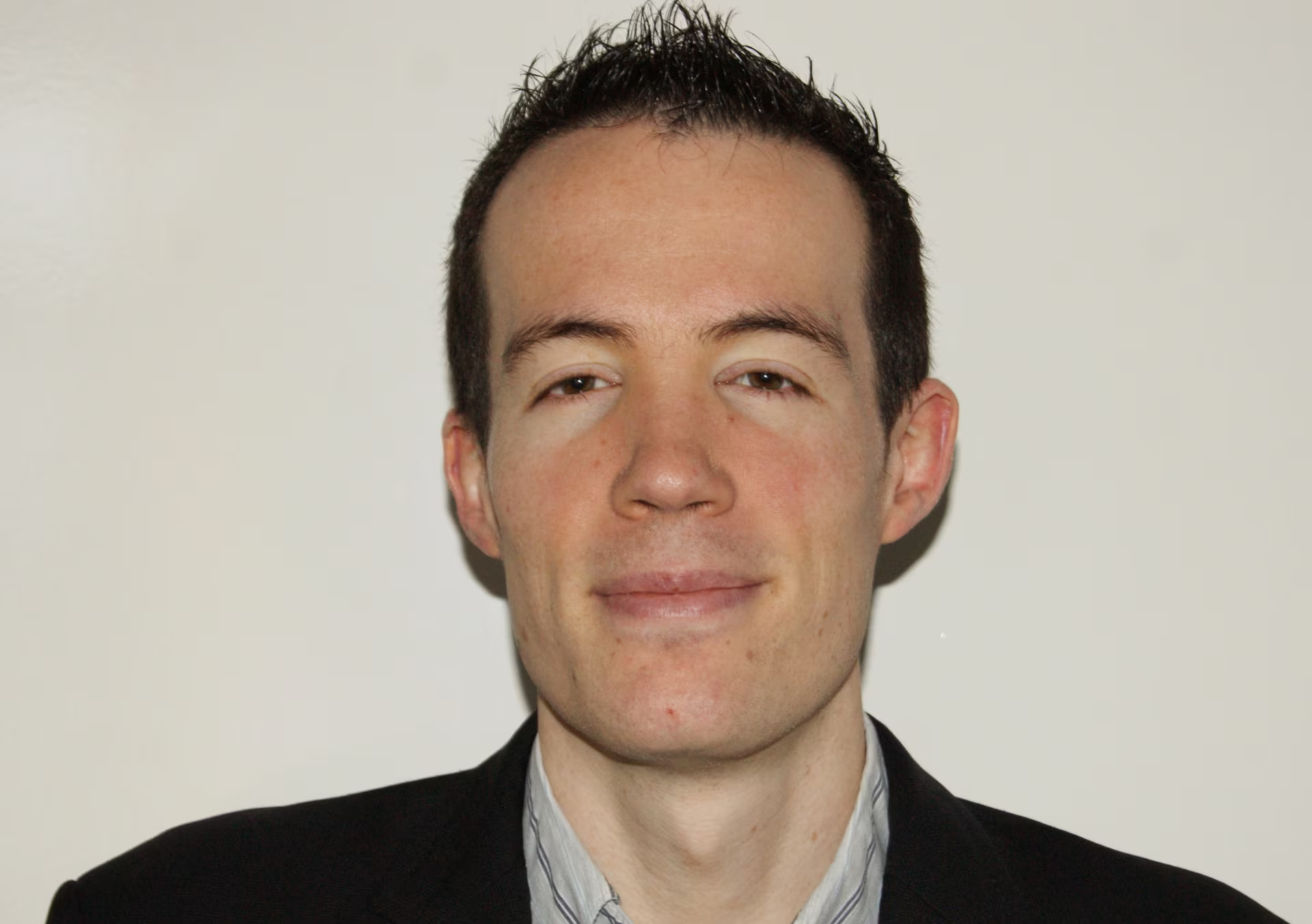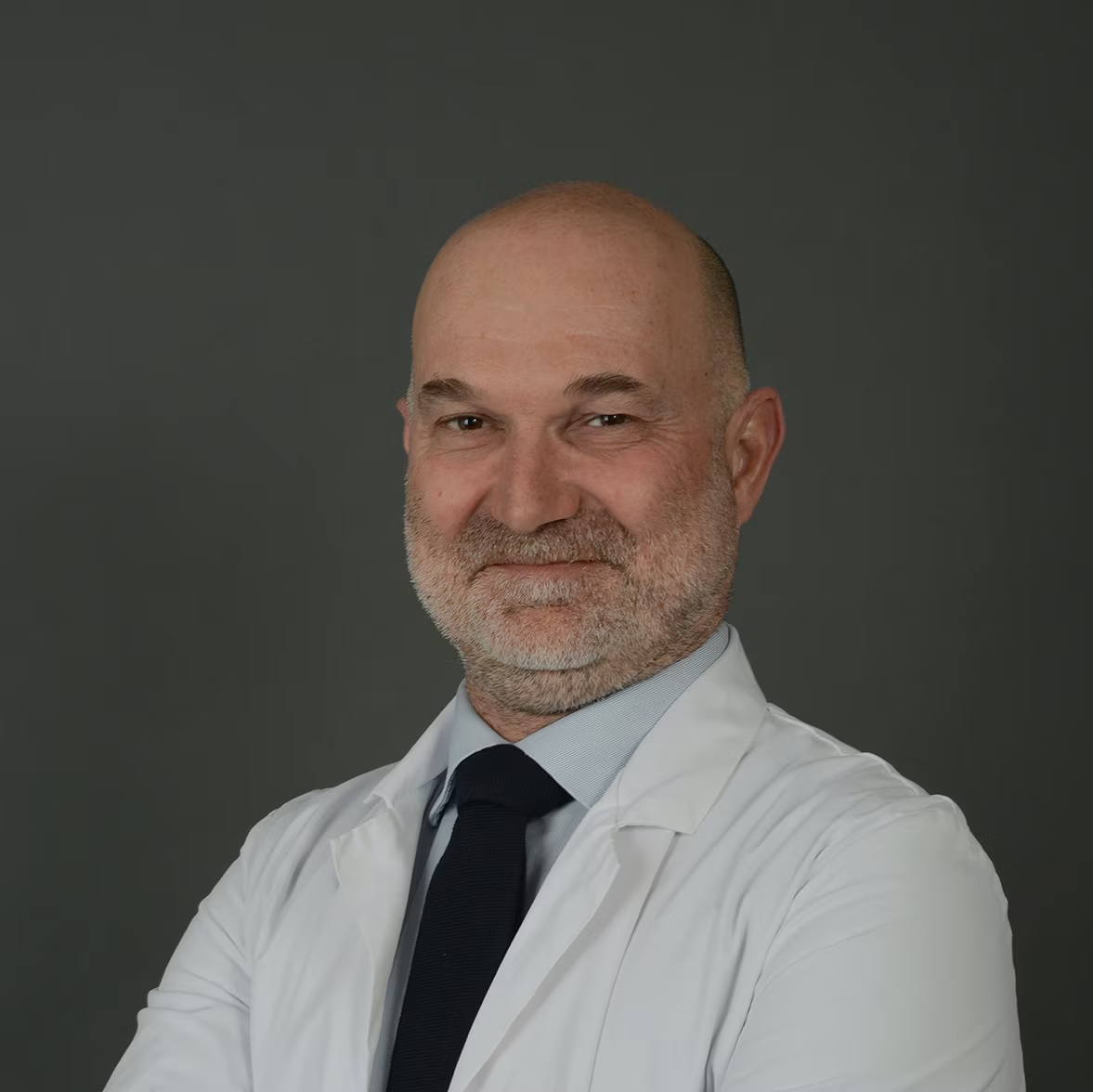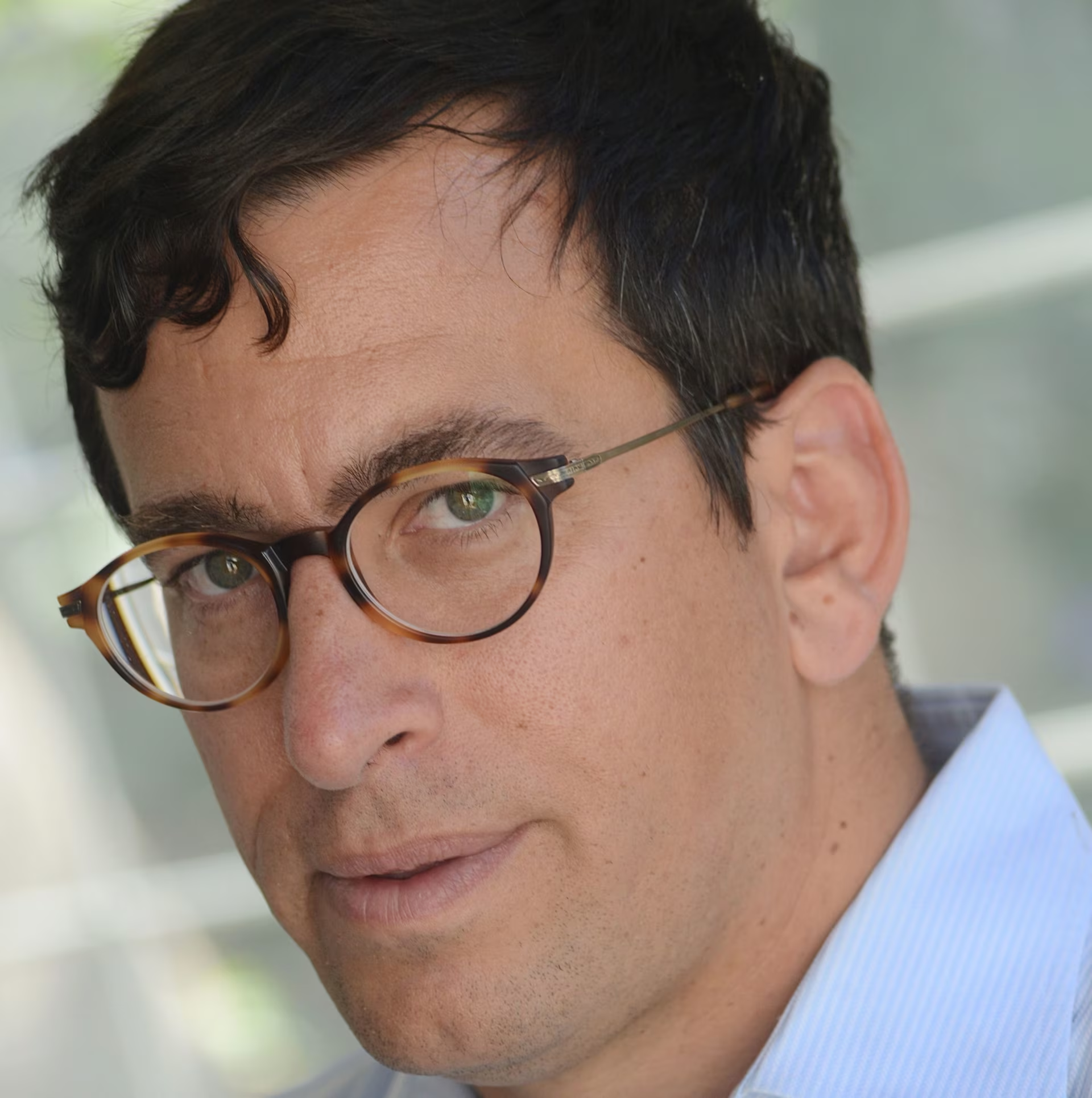touchEXPERT OPINIONS New frontiers in NSCLC immunotherapy
Watch leading non-small cell lung cancer (NSCLC) experts discuss immunotherapy and the emerging approaches targeting interleukin-1 (IL-1).
Dr Marina Garassino discusses the current role of immunotherapy in patients with NSCLC, including when and how immune checkpoint inhibitors are used in the clinic. She also considers the limitations of existing immunotherapy options.
1/5 Next InterviewIn this interview, Dr Marina Garassino answers the following questions:
- Which therapeutic targets are currently exploited in immunotherapy for NSCLC?
- When are checkpoint inhibitors currently used in the NSCLC treatment pathway and what are the associated outcomes?
- What are the limitations of current immunotherapies in the treatment of NSCLC?
- How do you envision immunotherapy for NSCLC will evolve in the future?
Marina Garassino is Head of the Thoracic Oncology Unit at the National Cancer Institute of Milan, Italy, where her principal area of research is thoracic malignancies (lung cancer, mesothelioma, thymic malignancies). She is principal investigator of several international and national trials. She is author and co-author of several papers on lung cancer and is a member of the sterring committee for numerous Italian and international trials. read more
In 1995, Dr Garassino received her medical degree from the University of Milan and in 1999 she achieved her board specialization in oncology. She continued her training in oncology at various European institutions.
Dr Garassino is one of the founding members of TERAVOLT (Thoracic cancERs international coVid 19 cOLlaboraTion), a global consortium that tracks outcomes of people with thoracic cancers affected by COVID-19.
Dr Marina Garassino discloses: Grants and personal fees from AstraZeneca, Bayer, Blueprint Medicine, BMS, Celgene, Eli Lilly, GlaxoSmithKline S.p.A., Incyte, MSD, Novartis, Otsuka Pharma, Pfizer, Roche, Sanofi-Aventis, Spectrum Pharmaceuticals. Personal fees from Boehringer Ingelheim, Daiichi Sankyo, Inivata, Janssen, Mirati Therapeutics, Seattle Genetics, Takeda. Grants from Array (Pfizer), Clovis, Exelisis, Ipsen, MedImmune, Merck KGaA, Merck Serono, Tiziana Sciences, Turning Point, United Therapeutics Corporation. Non-financial support from Eli-Lilly, MSD.
Prof. Kobold describes the key features of the tumour microenviroment in relation to anti-tumour immune responses and how different molecular targets can be exploited for therapeutic purposes.
2/5 Next InterviewIn this interview, Prof. Sebastian Kobold answers the following questions:
- What is the tumour microenvironment?
- How does the tumour microenvironment influence the tumour immune cycle?
- What is the dual role of inflammation in the tumour immune cycle?
- Which mechanisms of the tumour immune cycle are potential future targets for immunotherapy in NSCLC?
- In your opinion, which emerging immunotherapeutic agents are showing the most promise for NSCLC?
Sebastian Kobold is Professor of Medicine and Experimental Immunooncology and Vice-Chair of the Department of Clinical Pharmacology at the Ludwig-Maximilians-University of Munich in Germany.
Prof. Kobold is a specialist in experimental immunooncology, microbiology and clinical pharmacology. His scientific focus is tumour immunology, with a special interest in cellular and antibody therapies.
Prof. Sebastian Kobold discloses: Scientific advisory boards for Celyad, TCR2 Inc, Novartis. Honorarium for speaker activities from GSK, Novartis. Research support from TCR2 Inc, Arcus Biosciences.
Prof. Fabrice Barlesi describes the key biological features of the IL-1 family of proteins and their relevance for cancer immunity. He highlights the rationale for therapeutic targeting of IL-1 family members and describes the most relevant emerging treatments for solid tumours.
3/5 Next InterviewIn this interview, Prof. Fabrice Barlesi answers the following questions:
- What are the key elements of the IL-1 family and what are their roles in a physiological immune response?
- How do solid tumours affect the production and function of proteins of the IL-1 family?
- How do functional alterations of the IL-1 pathway contribute to disease progression in solid tumours?
- Which emerging agents targeting IL-1 are being investigated in solid tumours?
Fabrice Barlesi is Professor of Medicine at the University of Aix-Marseille and Head of Medical and Clinical Research at Gustave Roussy in Villejuif, France. He is a specialist in lung cancer, precision medicine and cancer immunology, and one of the major players in research on innovative cancer therapies.
He holds a doctorate in science and management, methods of analysis of health systems and a master’s degree in general hospital management from the École Supérieure des Sciences Economiques et Commerciales (ESSEC) Business School. read more
Prof. Barlesi co-founded the French immunology cluster Marseille Immunopole, which aims to bring together immunology experts from the Aix-Marseille metropolitan area. He has also created the Marseille Centre for Early Tests in Cancer (CLIP2).
Prof. Barlesi is the author and co-author of nearly 300 publications in international journals and specialized books. In 2019, he was included in the list of the world’s most influential researchers (highly cited researchers of the Web of Science Group).
Prof. Fabrice Barlesi discloses: Personal financial interests from AstraZeneca, Bayer, Bristol-Myers Squibb, Boehringer Ingelheim, Eli Lilly Oncology, F. Hoffmann–La Roche Ltd, Novartis, Merck, MSD, Pierre Fabre, Pfizer, Takeda. Institutional financial interests from Abbvie, ACEA, Amgen, AstraZeneca, Bayer, Bristol-Myers Squibb, Boehringer Ingelheim, Eisai, Eli Lilly Oncology, F. Hoffmann–La Roche Ltd, Genentech, Ipsen, Ignyta, Innate Pharma, Loxo, Novartis, Medimmune, Merck, MSD, Pierre Fabre, Pfizer, Sanofi-Aventis, Takeda. Principal investigator (non-financial interests) for AstraZeneca, BMS, Merck, Pierre Fabre and F. Hoffmann-La Roche Ltd, sponsored trials (or ISR).
Dr Edward Garon describes the rationale for targeting the IL-1β pathway in NSCLC and the clinical data that support it. He discusses the ongoing clinical development of IL-1β-targeted agents and their potential impact on the treatment of NSCLC.
4/5 Next InterviewIn this interview, Dr Edward Garon answers the following questions:
- What makes IL-1β a potential candidate target for cancer immunotherapy?
- What is the clinical evidence supporting the therapeutic potential for IL-1β inhibition in lung cancer?
- What clinical evidence suggests that the beneficial effect of IL-1β inhibition in lung cancer is due to a reduction of inflammatory responses?
- What is the current status of clinical testing of IL-1β inhibition for the treatment of lung cancer?
Edward Garon is Professor of Medicine and Director of the Thoracic Oncology Program at the David Geffen School of Medicine at the University of California, Los Angeles (UCLA), CA, USA.
He received his MD degree from the Washington University School of Medicine in 1999, and his internal medicine training at the University of Chicago. He trained in medical oncology at UCLA and joined the UCLA faculty in 2006. He also received a master’s degree in clinical investigation at UCLA. read more
Dr Garon was awarded the Diana Gordon Jonnson Award for Clinical Excellence in 2015. In addition to his clinical work, he also has an extensive focus in clinical and translational research. He has led studies that have led to U.S. Food & Drug Administration (FDA) approvals of two drugs and a companion diagnostic test. He has received multiple foundations grants in addition to National Institutes of Health (NIH) grants.
Dr Edward Garon discloses: Advisory/consultancy for Dracen, EMD Serono, GSK, Novartis. Research grant/funding (institution) from: AstraZeneca, EMD Serono, Genentech, Bristol-Myers Squibb, Merck, Eli Lilly, Novartis, Iovance, Neon, Dynavax, Mirati.
Dr Marina Garassino presents global epidemiological data on the impact of COVID-19 infection in patients with lung cancer. She highlights the challenges that the COVID-19 pandemic has posed on providing the highest standard of care to lung cancer patients and the lessons clinicians have learned from it.
5/5 Leave FeedbackIn this interview, Dr Marina Garassino answers the following questions:
- What are the clinical consequences of the COVID-19 pandemic for patients with lung cancer?
- Which are the risk factors associated with mortality in patients with lung cancer infected with COVID-19?
- How has COVID-19 affected the provision of care to newly diagnosed and existing patients with lung cancer?
- What challenges does COVID-19 pose to imaging in patients with lung cancer?
- How do you envision the care of patients with lung cancer will be affected in the near future and in the post-COVID-19 era?
Marina Garassino is Head of the Thoracic Oncology Unit at the National Cancer Institute of Milan, Italy, where her principal area of research is thoracic malignancies (lung cancer, mesothelioma, thymic malignancies). She is principal investigator of several international and national trials. She is author and co-author of several papers on lung cancer and is a member of the steering committee for numerous Italian and international trials. read more
In 1995, Dr Garassino received her medical degree from the University of Milan and in 1999 she achieved her board specialization in oncology. She continued her training in oncology at various European institutions.
Dr Garassino is one of the founding members of TERAVOLT (Thoracic cancERs international coVid 19 cOLlaboraTion), a global consortium that tracks outcomes of people with thoracic cancers affected by COVID-19.
Dr Marina Garassino discloses: Grants and personal fees from AstraZeneca, Bayer, Blueprint Medicine, BMS, Celgene, Eli Lilly, GlaxoSmithKline S.p.A., Incyte, MSD, Novartis, Otsuka Pharma, Pfizer, Roche, Sanofi-Aventis, Spectrum Pharmaceuticals. Personal fees from Boehringer Ingelheim, Daiichi Sankyo, Inivata, Janssen, Mirati Therapeutics, Seattle Genetics, Takeda. Grants from Array (Pfizer), Clovis, Exelisis, Ipsen, MedImmune, Merck KGaA, Merck Serono, Tiziana Sciences, Turning Point, United Therapeutics Corporation. Non-financial support from Eli-Lilly, MSD.
Overview & Learning Objectives
Overview
In this activity, international lung cancer experts discuss the current role of immunotherapy in the management of NSCLC and outline the most promising emerging immunotherapeutic strategies targeting inflammatory mediators, with a focus on the IL-1 pathway. Dr Marina Garassino also provides insight into the impact of the COVID-19 pandemic on the care of patients with lung cancer.
Learning Objectives
After watching this activity, participants should be better able to:
- Recognize the remaining challenges in terms of long-term survival for patients with NSCLC despite the availability of checkpoint inhibitors
- Describe the tumour immune cycle and the therapeutic opportunities it may provide
- Discuss the potential for reduction in cancer morbidity and mortality with IL-1-targeted agents and its implication for early treatment of NSCLC

Register to touchRESPIRATORY for FREE
- Peer-reviewed journals and expert opinions
- Interactive CME and e-learning modules
- Video conference highlights




